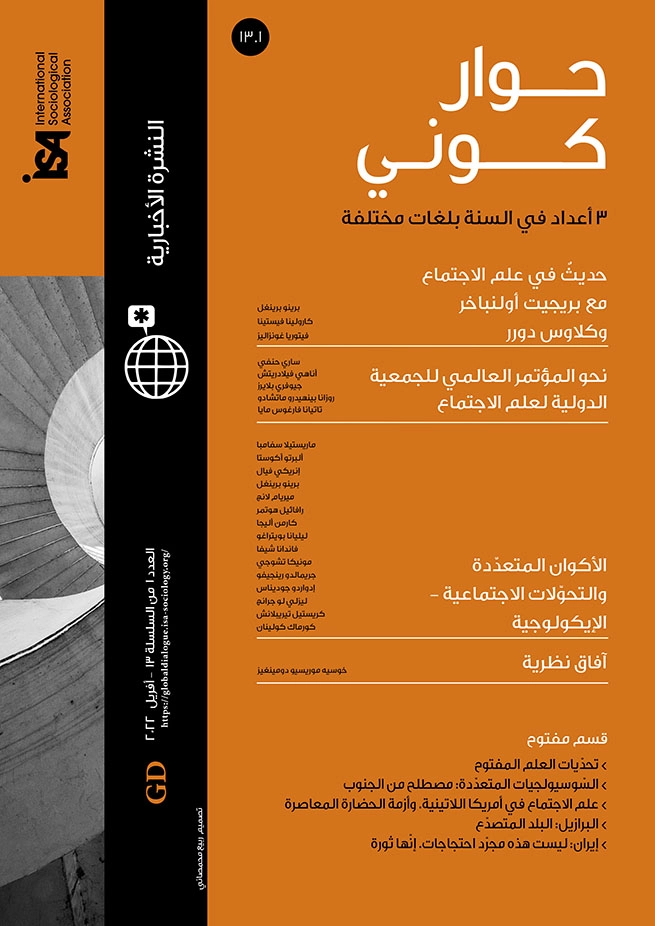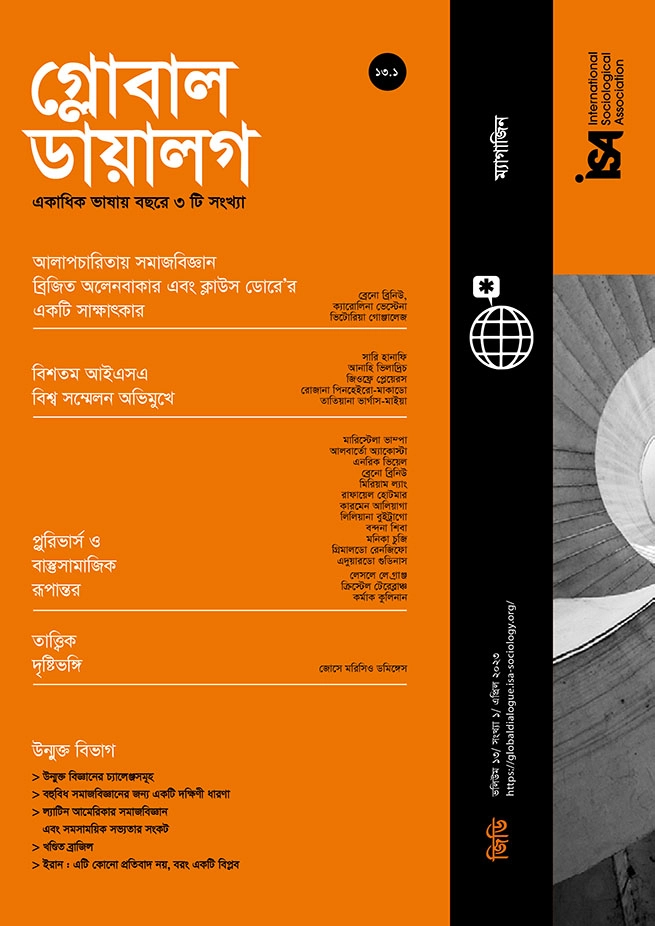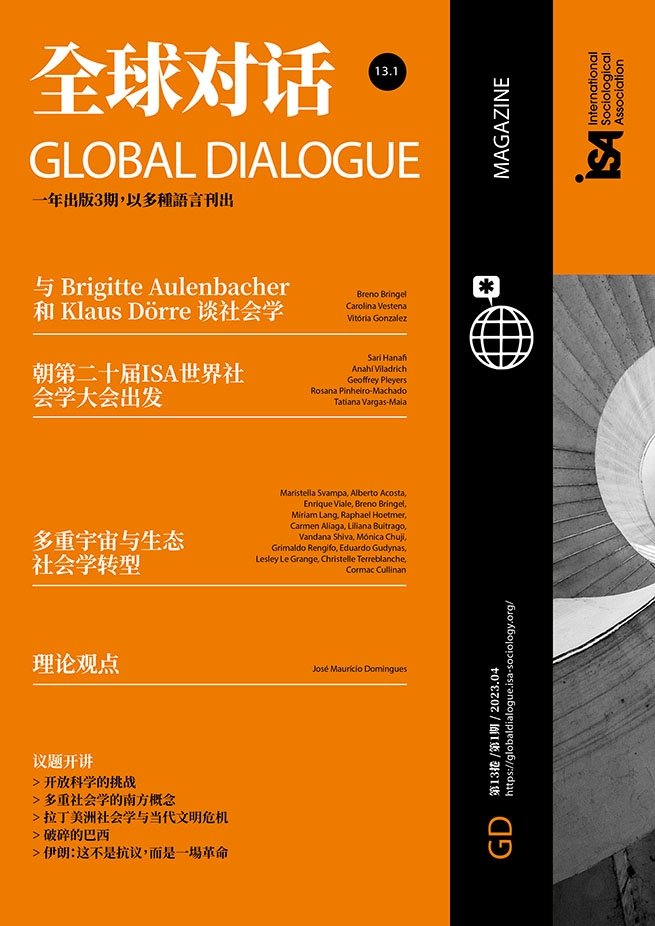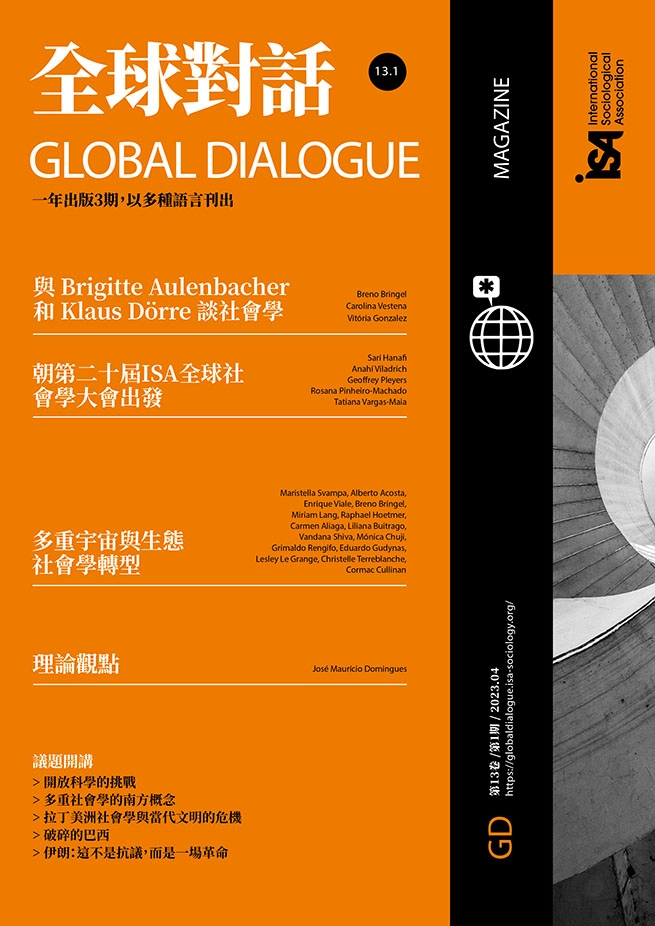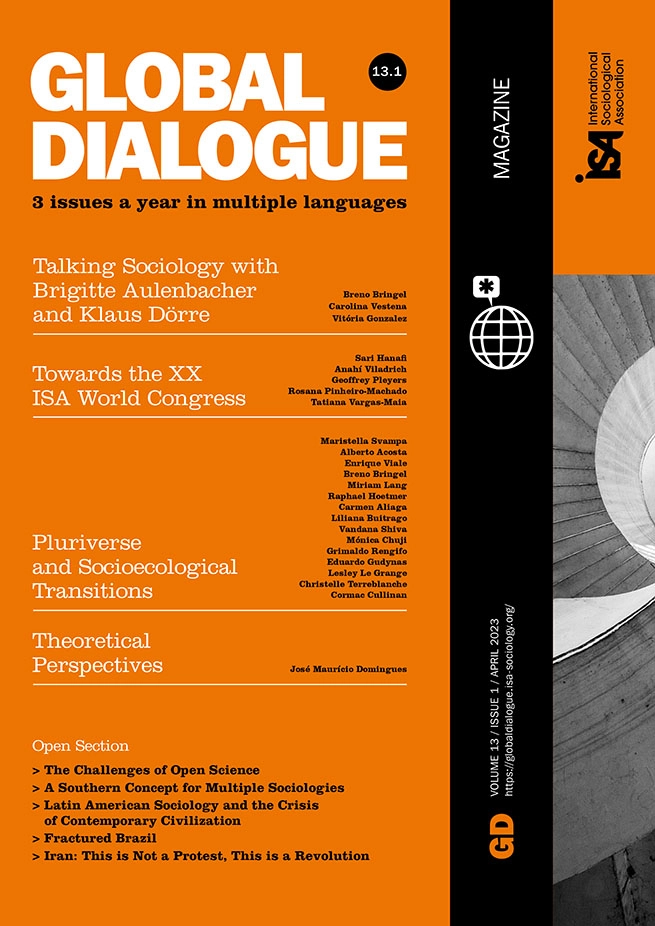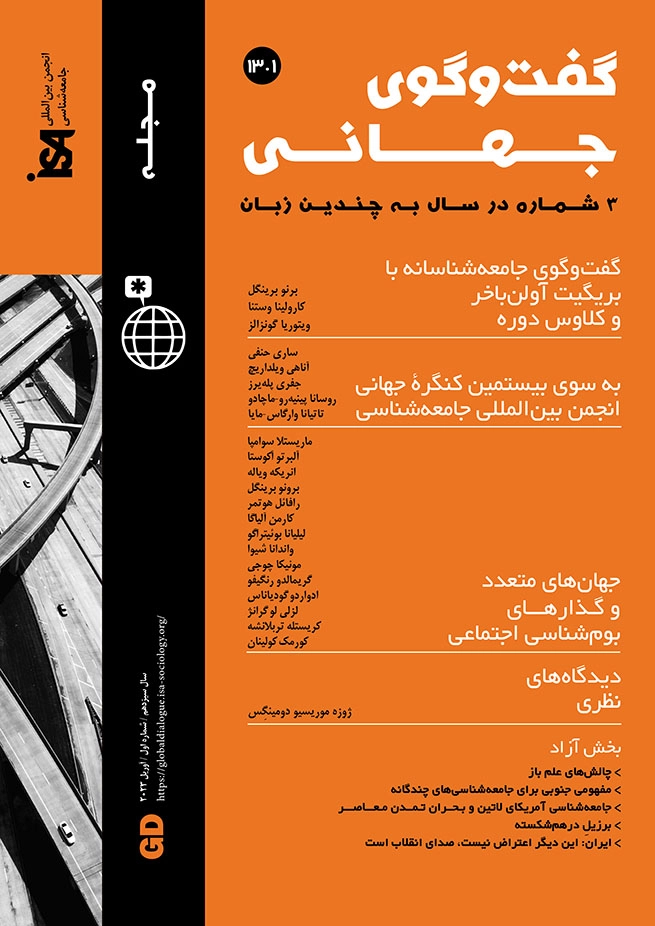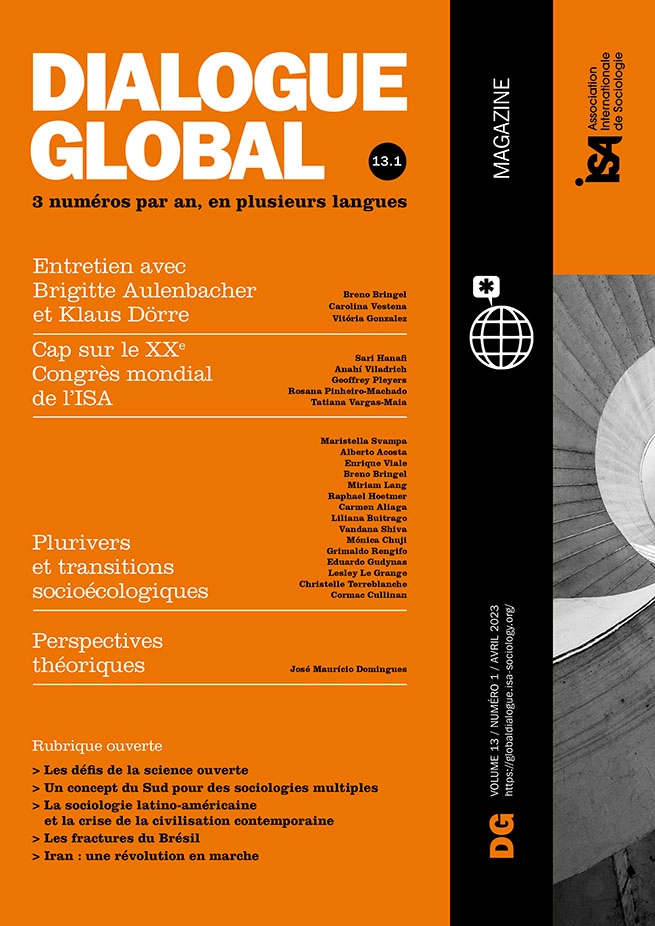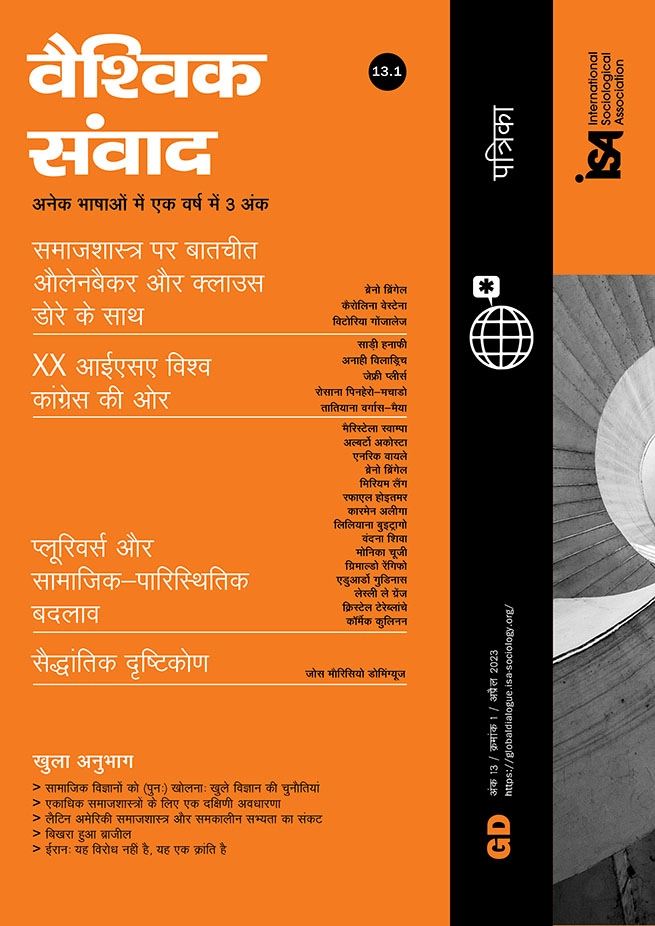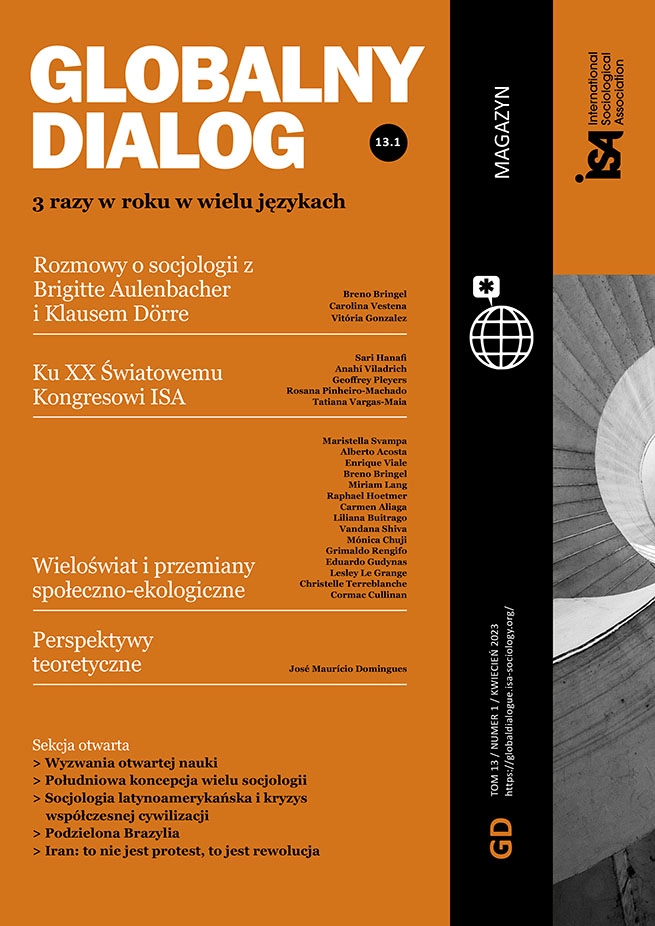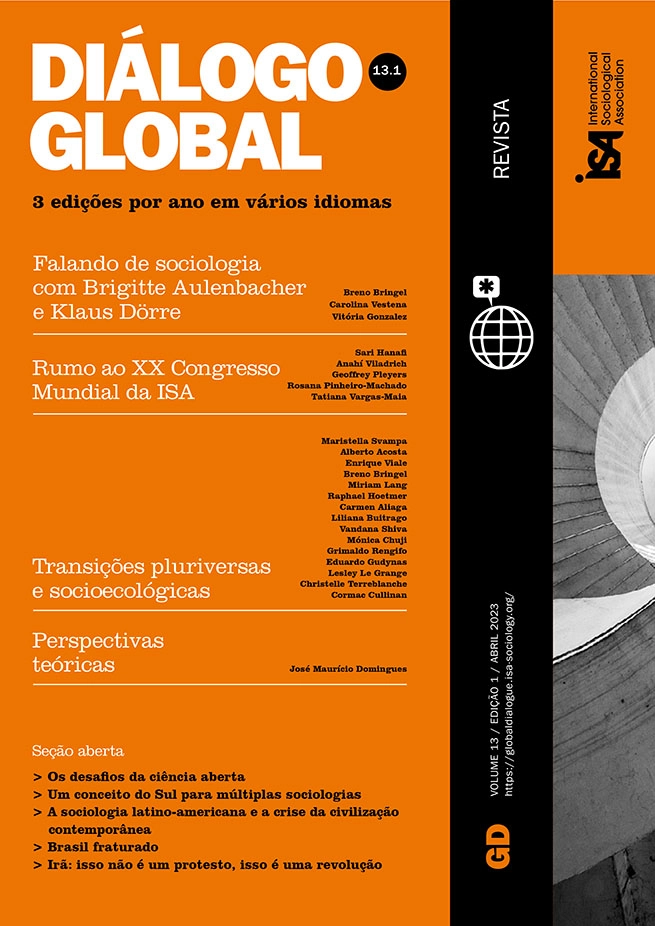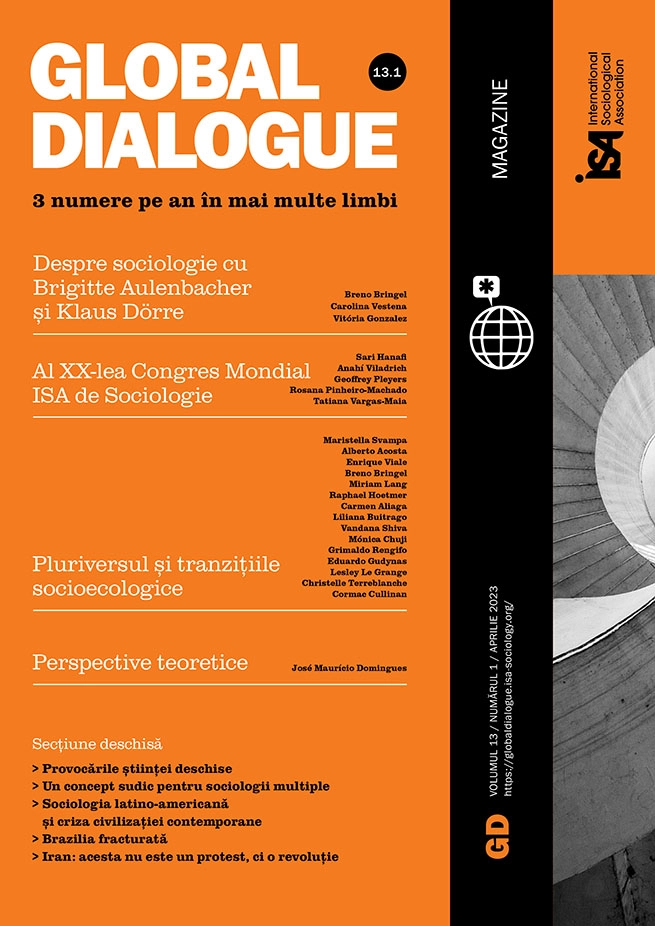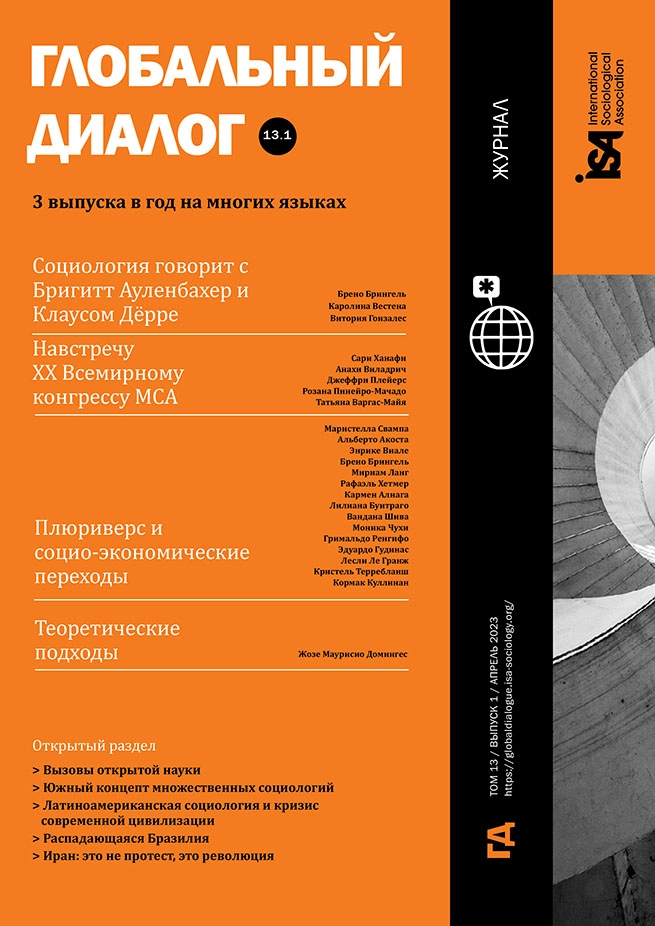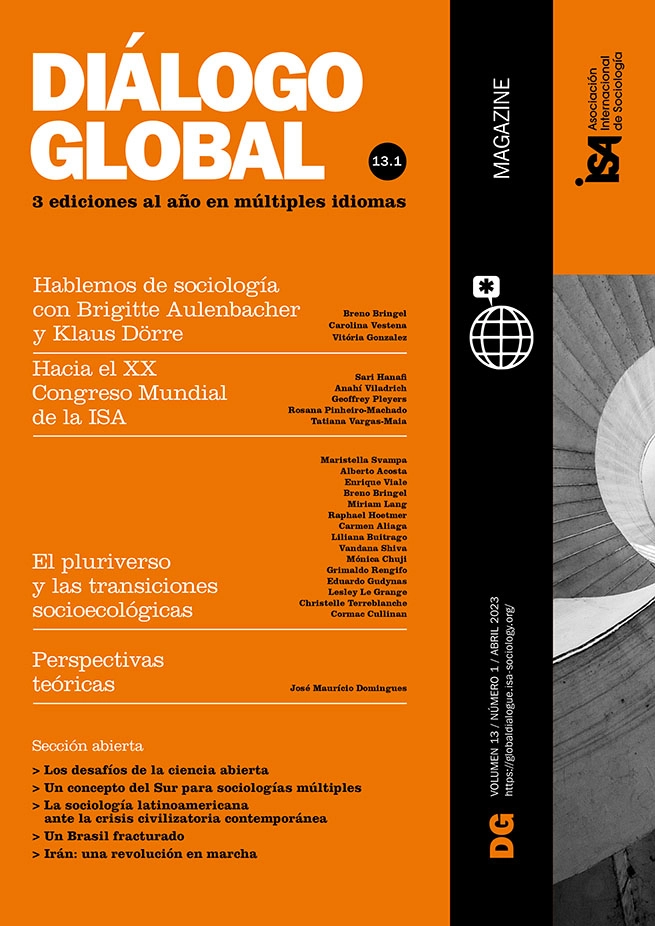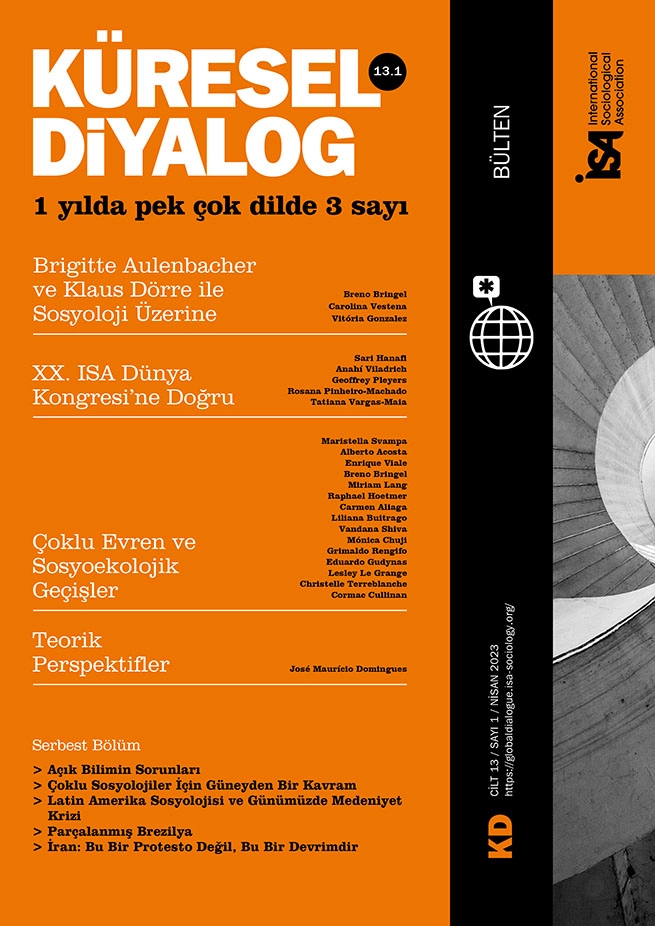In 1996, former ISA president Immanuel Wallerstein called on the international community to restructure the social sciences in the well-known Gulbenkian Commission Report. The report questioned the development of these disciplines in the nineteenth century, when they accompanied the development of European colonial states, turning their particular experiences and observations into a supposedly universal theoretical construction. The consolidation and institutionalisation of these disciplines required each of them to have specialised methodologies, and this strengthened the partitions separating the analysis of the social. Under the slogan “Open the social sciences”, the report identified the need to abandon Eurocentrism and promote multilingualism, interdisciplinarity, the transparency of research processes and international collaboration.
Recently, UNESCO adopted its “Recommendation on Open Science”, which draws on similar concerns and aims to open up the results (through open access to publications) and the process (through open access to data) of scientific research. Open science encompasses all scientific disciplines and all aspects of academic practices, including basic and applied sciences, natural sciences, social sciences and the humanities. It emphasises the need for traditional science to be open to different knowledge systems. It also recommends active collaboration with different societal sectors and active engagement with the problems relevant to society (citizen science).
With 25 years between one publication and the other, the main difference between these two global projects lies in the digital character of open science and its emphasis on the openness of the research process (open data, open evaluation) through collaborative infrastructures. On the other hand, what unites the two projects is a concern for the structural inequalities that affect the process of knowledge circulation and the need to ensure epistemological diversity and multilingualism.
Safeguarding the openness of social science data
Because of their epistemological characteristics, relationships with the subjects they study, and methods of enquiry, the social sciences and humanities present specific challenges to the open science project. The indiscriminate openness of their research processes and the data collected have implications that affect the privacy of individuals and may endanger subaltern communities. However, codes of ethics, “habeas data” norms and national legislation on the use of personal data provide a sufficient framework to safeguard these aspects, which is why it is necessary to reflect on the resistance to sharing research data in the social sciences and humanities.
In disciplines less accustomed to teamwork, much of this resistance is fuelled by fear of losing intellectual property rights over work or diminishing the harvest of individual achievements in academic or theoretical terms. As is also the case in the “hard” sciences, there is a declarative recognition of the social value of science, but a difficulty in accepting that publicly funded research is a common good. The direct implication is that knowledge is cumulative, and we should avoid collecting the same information repeatedly from different research teams. There is also some isolated resistance in this area related to the intimate recognition of the empirical weaknesses of research that would not stand up to open scrutiny of the evidence.
One of the main advantages of making data openly available to the scientific community and generating collaborative infrastructures is that these platforms are interoperable and allow for the integration of information about the people who produced each digital object, their institutions, projects and open access output. Institutional repositories play a fundamental role in the curation of digital objects. It is expected that datasets and scientific products of different types can be deposited together with the scholarly evaluation that gives them their seal of quality. Open evaluation, an aspect of open science that is not yet globally agreed upon, can favour the knowledge dialogue and help resolve ideological objections or theoretical disputes that are the order of the day in these disciplines and often end up challenging the publication of an article.
Nevertheless, Open Science does not foretell only advantages. The dominant use of English as the code of interoperability promotes inequalities, reinforces the exaggerated homogenisation of science communication in English, and puts bibliodiversity at risk. Meanwhile, an acceleration of open access to scientific publications has been stimulated, mainly in Europe, through programs such as “Plan S” from “Coalition S” and the imposition of direct charges to authors (article processing charges: APCs). The indiscriminate and gradual increase of APCs to ensure the publishing industry’s exorbitant profit rates is already generating a greater segmentation between researchers in hegemonic and non-hegemonic countries. The project of Open Science is an ongoing construction with tensions and struggles.
Questioning Eurocentrism and implementing contextualised Open Science
Revisiting the project of opening up the social sciences launched by the Gulbenkian Report coordinated by Immanuel Wallerstein makes it possible to recover the vitality of a program that questioned the foundations of a Eurocentric and colonial system of knowledge that today is part of the open science project. At the same time, it raises questions about the relatively marginal participation of the social and human sciences in a project that these disciplines could embrace more enthusiastically. The specificity of research conducted in sociology and the other social and human sciences, both in ethnographic dynamics and in the coproduction of knowledge with vulnerable social groups, poses difficulties when sharing research data. The reasons for this are diverse and due to the sensitive nature of information on people or organisations and the type of data they construct, which only sometimes find a place in the established formats for sharing datasets in institutional repositories.
In this sense, building capacity at the institutional level is essential to recover all the normative sets involved and disseminate open science principles and good practices. Also, there is a need for more significant commitment from researchers to advance in opening up publicly funded research data and the revision and contextualisation of open data modules to adapt them to the specific needs of each field of study.
One of the main dimensions of open science, citizen science, finds a rich theoretical and practical terrain for developing participatory science in the social sciences. Latin America has developed a theoretical tradition and its methods of participatory science for decades. In addition to the contributions of Fals Borda, experiences such as Paulo Freire’s Popular Education and the Southern Epistemologies are milestones. Most Latin American universities have been implementing extension projects (third mission) since the beginning of the twentieth century. These interactions between universities and society offer an accumulation of practices that promote the coproduction of knowledge and establish their itinerary to broaden open science’s participatory nature.
In this sense, the novelty of participatory science arises not when certain social groups are “invited” to collaborate with scientists but when it is linked to the right to science and the right to investigate. For participatory science to be effectively open and exercised as a basic human right, we must recognise that researchers do not own the data collected with public funds. And above all, the communities that participate in social research cannot be instrumentalised as mere collectors of information without a right to processing and interpreting.
Citizen Science is not the prerogative of the social sciences. On the contrary, the experiences surveyed are mostly linked to the environmental sciences. But some regions of the world – mainly the more peripheral ones – have a tradition of building a science of participatory action that offers a series of methodological principles that can be extended. At the university level, the set of practices and experiences gathered in the tradition of critical extension represents an accumulation of crucial knowledge for developing citizen science and multi-university knowledge.
Democratisation, informational justice and the eradication of inequalities
It is indispensable to subvert information asymmetries and unequal power relations to boost open and participatory science. More democratic systems of governance of open research processes are needed. The CARE Principles (Collective benefit, Authority to control, Responsibility, Ethics) for Indigenous Data Governance offer a conceptual framework for seeking to reverse historical power imbalances in the scientific practices that the academic community carries out with communities. Still, specific actions and incentives are required for evaluation and funding systems, contextualised at the institutional level according to the needs of the communities involved.
Global asymmetries in digital infrastructure, languages of knowledge circulation and the accumulation of academic prestige have a decisive impact on the conditions for opening up science in each country and region. From this perspective, the dialogue between Wallerstein’s program and the open science project is becoming more productive today. To continue it requires some reflections linked to the decolonisation of science to design open science policies for the entire Global South. We may even need to imagine new forms of academic diplomacy that bring together diverse actors in the scientific world, such as national professional associations, regional networks, publishers, students, librarians, researchers and international organisations.
Opening up research data and making it freely accessible for sharing and reuse is a core issue of open science. But it does not guarantee the capacities for the interoperability of these data, nor does it assure the social appropriation of the results or the relevance it has for a particular society. The current logic of scientific development is tied to a global academic system based on a “mainstream” productive model that has been noxious at all levels. Many discussions are required, overthrowing widely held beliefs to advance in the academic community.
Due to its specificity, it is critical to analyse the openness of indigenous ancestral knowledge separately, which was the subject of deep discussion during the elaboration of the Draft of the Open Science Recommendation at UNESCO. The idea that this may imply a compulsory opening of indigenous knowledge was criticised by native communities in the global consultation convened for this purpose and led to substantial changes and new phrasing in the Recommendation. Some studies prove processes of extraction of traditional indigenous knowledge and its commodification. Stevia is a paradigmatic case of cognitive contribution produced by Paraguayan Guarani families, located in the Cordillera de Amambay, who discovered the existence of Ka'a He'e and its sweetening property, the place to find it and information about its growth. Its expropriation and processing under rules and procedures set by the scientific institutions of the imperial metropolises made this plant enter the capitalist economic rationality favouring exploitation processes. When opening science to other knowledge systems, it is essential to reaffirm the Recommendation of the United Nations Declaration on the Rights of Indigenous Peoples (2007) and the autonomous and inalienable right of indigenous communities over their traditional knowledge.
Accordingly, the local, national and regional anchoring of science policies puts scientific sovereignty at the forefront of public agendas of non-hegemonic countries in various dimensions; for example, the repatriation of data extracted by commercial platforms or publishers, the autonomous government of indigenous knowledge and the discussion of the social relevance of science in a contextualised balance between global criteria and local research standards. We must recognise infrastructural asymmetries as a critical piece to boost epistemological diversity. Likewise, we should generate policies to eradicate social inequalities in the processes of knowledge generation and inequalities of race, ethnicity, disability or gender in its circulation. These asymmetries are multi-scalar, as are the solutions we must find to promote an open science aligned with social, cognitive and informational justice.
An extended version of this article in English will be published soon in Global Perspectives (Special Issue “Social Sciences in Latin America”).
Fernanda Beigel, CONICET and Universidad Nacional de Cuyo, Argentina, and Steering Committee member of ISA Research Committee on the History of Sociology (RC08) <fernandabeigel@gmail.com> / Twitter: @BeigelFernanda




